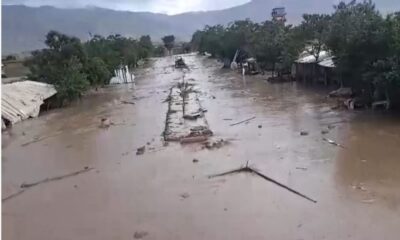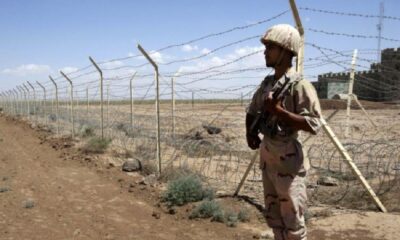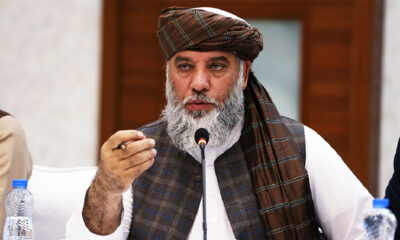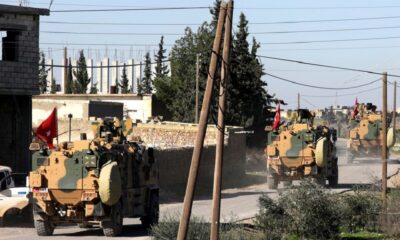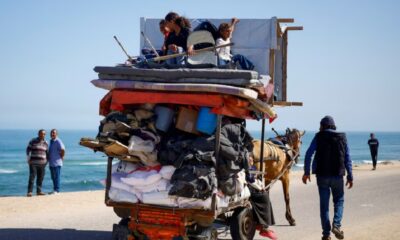Latest News
Attacks on healthcare sector a matter of grave concern: UN Report
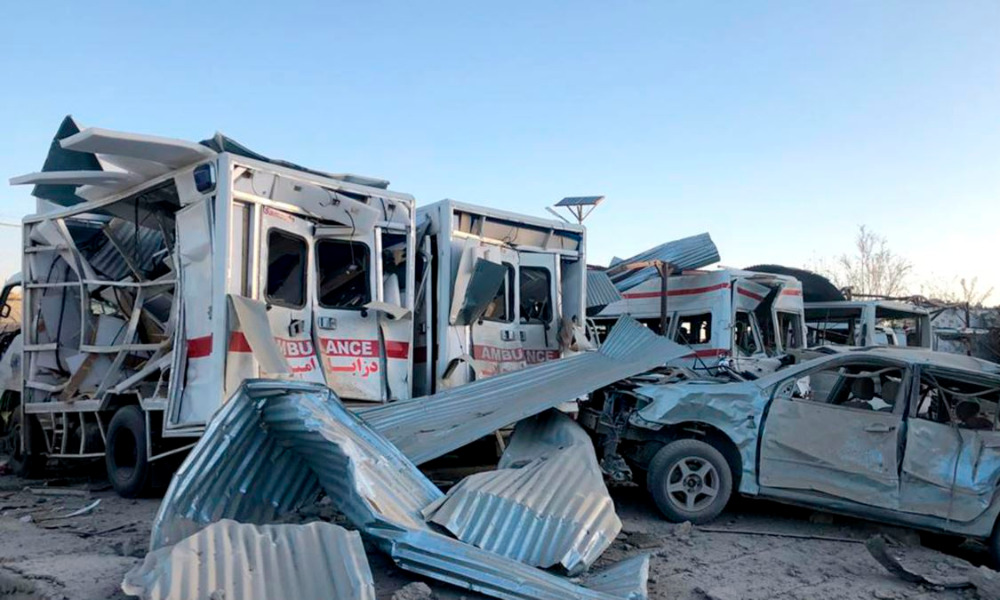
The United Nations Assistance Mission in Afghanistan (UNAMA) Sunday issued a report stating it was gravely concerned by recent deliberate attacks on healthcare personnel and facilities, especially in the context of the COVID-19 pandemic.
The new special report, released by the UN Assistance Mission in Afghanistan (UNAMA), details findings of its monitoring of all incidents of the armed conflict affecting healthcare from 11 March, the date the World Health Organization declared the outbreak of COVID-19 a global pandemic, to 23 May, the start of a three-day ceasefire between the Taliban and the Afghan government.
The report titled “Attacks on Healthcare during the COVID-19 pandemic,” documents the harm to healthcare workers, damage to healthcare facilities and other ways in which parties to the conflict have “interfered” with necessary healthcare, both as a result of targeted attacks as well as from ongoing fighting, a statement issued Sunday by UNAMA read.
UN in #Afghanistan gravely concerned by recent deliberate attacks on healthcare personnel and facilities, especially in the context of the #COVID19 pandemic. Read more: https://t.co/FczYFcuqAw. pic.twitter.com/aagFkd7SZC
— UNAMA News (@UNAMAnews) June 21, 2020
According to UNAMA, they had already raised concerns about such incidents in their report for the first quarter of 2020.
“Since then, the situation deteriorated: the Taliban continued abducting healthcare workers and attacked a pharmacy; the Afghan national security forces carried out deliberate acts of violence and intimidation affecting a healthcare facility, workers and the delivery of medical supplies; and unknown gunmen perpetrated an attack on a maternity ward in a hospital in Kabul, resulting in dozens of civilian casualties,” the statement read.
Deborah Lyons, the Secretary-General’s Special Representative for Afghanistan and head of UNAMA, meanwhile said: “At a time when an urgent humanitarian response was required to protect every life in Afghanistan, both the Taliban and Afghan national security forces carried out deliberate acts of violence that undermined healthcare operations.”
“There is no excuse for such actions; the safety and well-being of the civilian population must be a priority,” she said.
When an urgent humanitarian response was required to protect every life in #Afghanistan during #COVID19, deliberate acts of violence undermined healthcare operations; civilian population must be a priority. – @DeborahLyonsUN in new UN report. More: https://t.co/FczYFcuqAw pic.twitter.com/gnQebnZ45y
— UNAMA News (@UNAMAnews) June 21, 2020
The report documents 15 incidents affecting healthcare provision, where 12 were deliberate attacks, and the remaining incidents involved incidental harm.
UNAMA said most of these healthcare-related incidents – eight of the targeted attacks and two of the incidents with incidental harm – were attributed to the Taliban but added Afghan national security forces were responsible for three targeted attacks against healthcare.
“One instance of incidental harm to healthcare occurred in the context of clashes between Afghan national security forces and the Taliban. The most abhorrent attack, on a maternity ward in a Kabul hospital, remains unattributed,” the statement read.
The report emphasized that deliberate acts of violence against healthcare facilities, including hospitals and related personnel, are prohibited under international humanitarian law and constitute war crimes.
“Perpetrating targeted attacks on healthcare during the COVID-19 pandemic, a time when health resources are already stretched and of critical importance to the civilian population, is particularly reprehensible,” said Fiona Frazer, UNAMA Chief of Human Rights.
The report also stated that the harm caused by attacks on healthcare, particularly during a health pandemic, extends well beyond the direct victims of those incidents and stressed that even with ongoing conflict, the people of Afghanistan have the right to the highest attainable standard of physical and mental health under international human rights law.
The UN stated that it condemns all deliberate attacks, threats, abductions, and other intentional acts against healthcare facilities and personnel, as outlined in the report.
“In a situation in which the entire population in Afghanistan is at risk from COVID-19, there can be no greater priority than ensuring that health services can continue to operate without interference, interruption, and with sufficient resources,” the organization stated.
The UN also reiterated calls to all parties to heed the Secretary-General’s call for a global ceasefire so all attention and resources can be directed toward fighting the COVID-19 pandemic and prevent further harm being caused to the people of Afghanistan.
Latest News
Floods leave 50 dead in Baghlan

Hedayatullah Hamdard, head of the Natural Disaster Department in Baghlan, says at least 50 were killed on Friday afternoon due to floods in several districts of the province.
Hamdard added the figure is not total and that the death toll may increase.
Over the past two days, floods have also caused huge financial losses in Chaharsada and Murghab districts of Ghor province and two people including a child and an old man have disappeared.
Hundreds of acres of agricultural land were destroyed in Chaharsada district and about 50 livestock were also lost.
According to local officials in Ghor, around 50 residential houses in Chaharsada district are under floods.
Latest News
Iran says work underway to block eastern border with Afghanistan
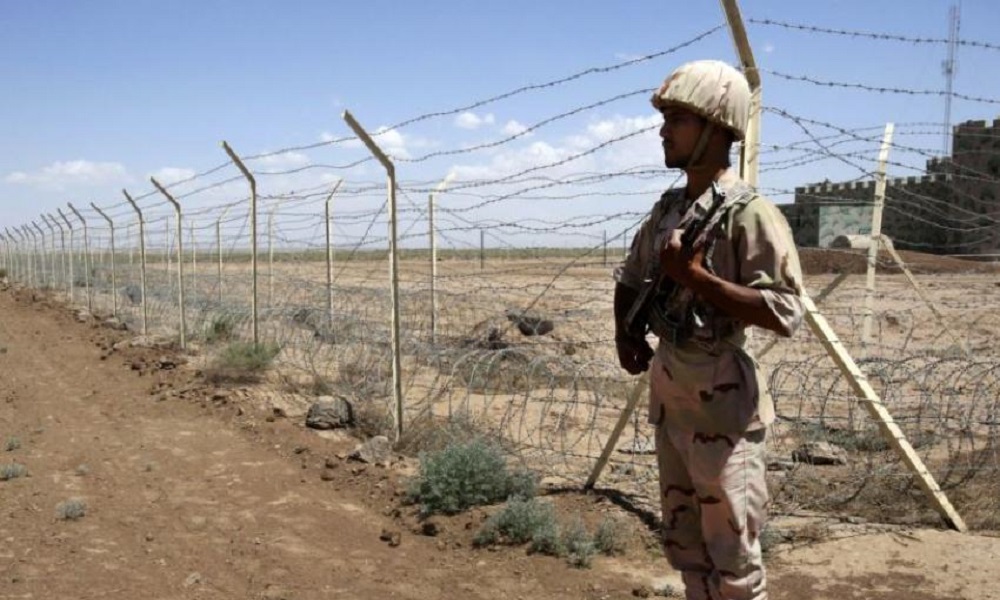
Iranian officials say work is intensely underway on the implementation of plan to block the country’s eastern border with Afghanistan.
According to Iranian media, the commander of the Ground Forces of Iran spoke on Thursday at a ceremony in the city of Mashhad about the sealing of the country’s borders with Afghanistan.
Kioumars Heydari added: “According to the measures contemplated by the Islamic Republic, we are in the process of sealing the borders.”
He did not specify the exact timing for the completion of the border sealing plan between Iran and Afghanistan, but added: “Our estimate is that the sealing of the eastern border of the country will be completed as soon as possible.”
Afghanistan and Iran share more than 900 kilometers of common border.
Experts, meanwhile, believe that this will cause a change in dealings with Afghan immigrants.
The Islamic Emirate, however, says fencing on the borders of Iran and Afghanistan will proceed in coordination with the Afghan government.
According to experts, Iran is seeking to solve its security concerns and will spend a lot of money in the process of blocking the border but this border wall will be finished for the benefit of both countries, and drug trafficking and movement of terrorist groups will be at least under control.
Latest News
Pakistan rejects IEA’s allegations of Daesh using its territory against Afghanistan
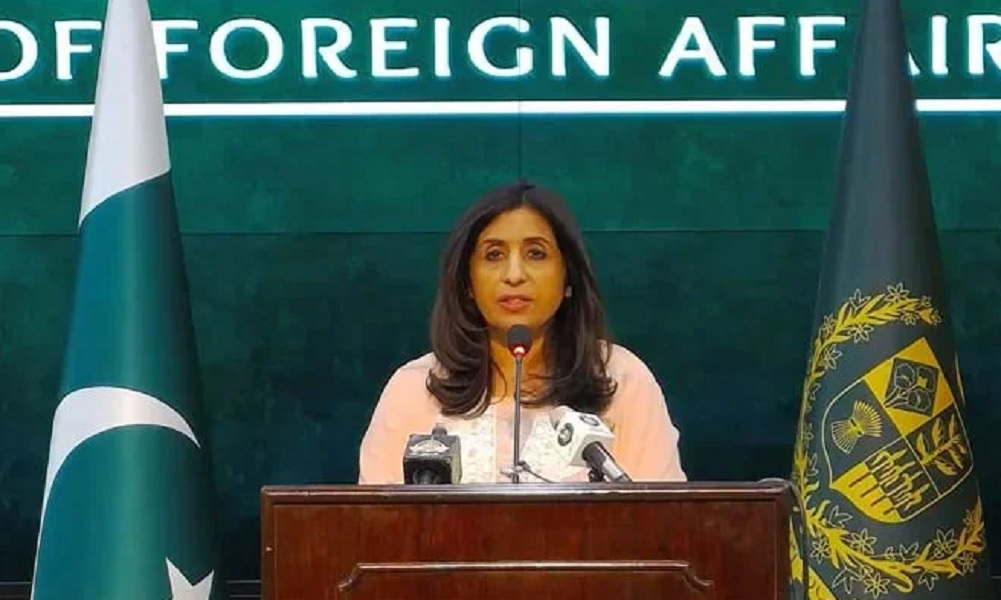
The Ministry of Foreign Affairs of Pakistan on Thursday rejected the statements of the Islamic Emirate regarding the use of Pakistan’s soil against Afghanistan by Daesh, calling the remarks as “unwarranted and irresponsible.”
Mumtaz Zahra Baloch, spokesperson of Pakistan’s Ministry of Foreign Affairs, said in a press conference that instead of such statements, the Afghan authorities should take effective action against all terror groups, based in Afghanistan.
Earlier, the Pakistan Army claimed that last month’s suicide attack that killed five Chinese nationals in Khyber Pakhtunkhwa had been planned in Afghanistan and had been carried out by an Afghan.
In reaction, a spokesman for the Ministry of Defense of Afghanistan, Inayatullah Khwarazmi, said that in an area of Khyber Pakhtunkhwa, which is under the security of the Pakistan Army, the killing of Chinese nationals is either the weakness of the security institutions or their cooperation with the attackers.
He also said: “We have cases where the Daesh entered Afghanistan from Pakistan, and Pakistani soil was used against our soil, and the attacks are planned in that country.”
Pakistan has repeatedly claimed that Afghan soil is being used in attacks against Pakistan, but this was the first time the Islamic Emirate accused Pakistan of not preventing Daesh from entering Afghanistan.
-

 Business5 days ago
Business5 days agoAfghanistan’s Turkey-bound goods via rail cross Tehran
-

 Latest News5 days ago
Latest News5 days agoOIC summit urges IEA to respect girls’ right to education
-

 Business4 days ago
Business4 days agoTurkmenistan’s industrialists keen to buy Herat-made construction material
-

 Sport5 days ago
Sport5 days agoAbu Muslim humiliate Maiwand with 9-1 win; Sohrab Afghan scores 5 goals
-

 World5 days ago
World5 days agoIsraeli authorities raid Al Jazeera after shutdown order
-
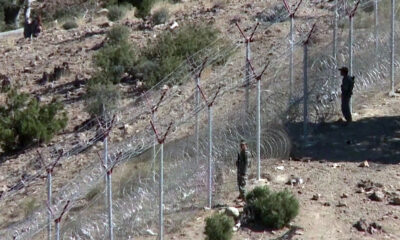
 Latest News4 days ago
Latest News4 days agoIranian official: Only vulnerable points of Afghanistan’s border will be walled and fenced
-
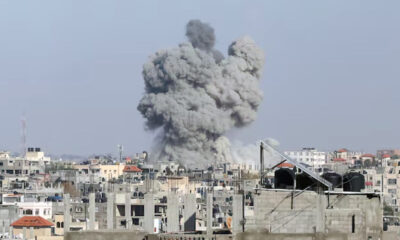
 World4 days ago
World4 days agoHamas says it accepts ceasefire proposal of Egypt, Qatar
-
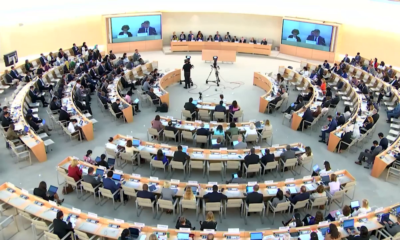
 Latest News5 days ago
Latest News5 days agoUNHRC approves national human rights report on Afghanistan


